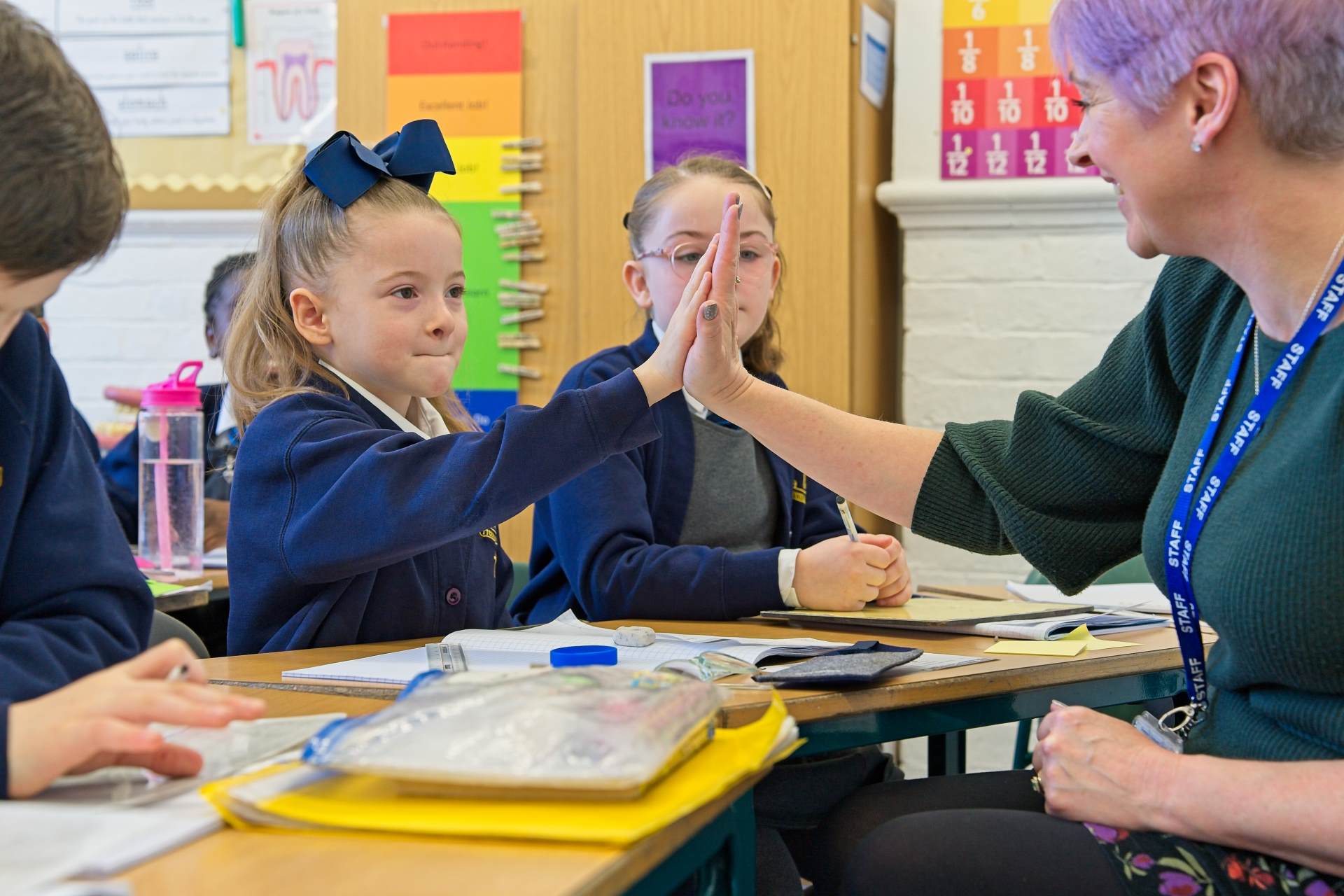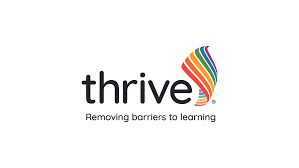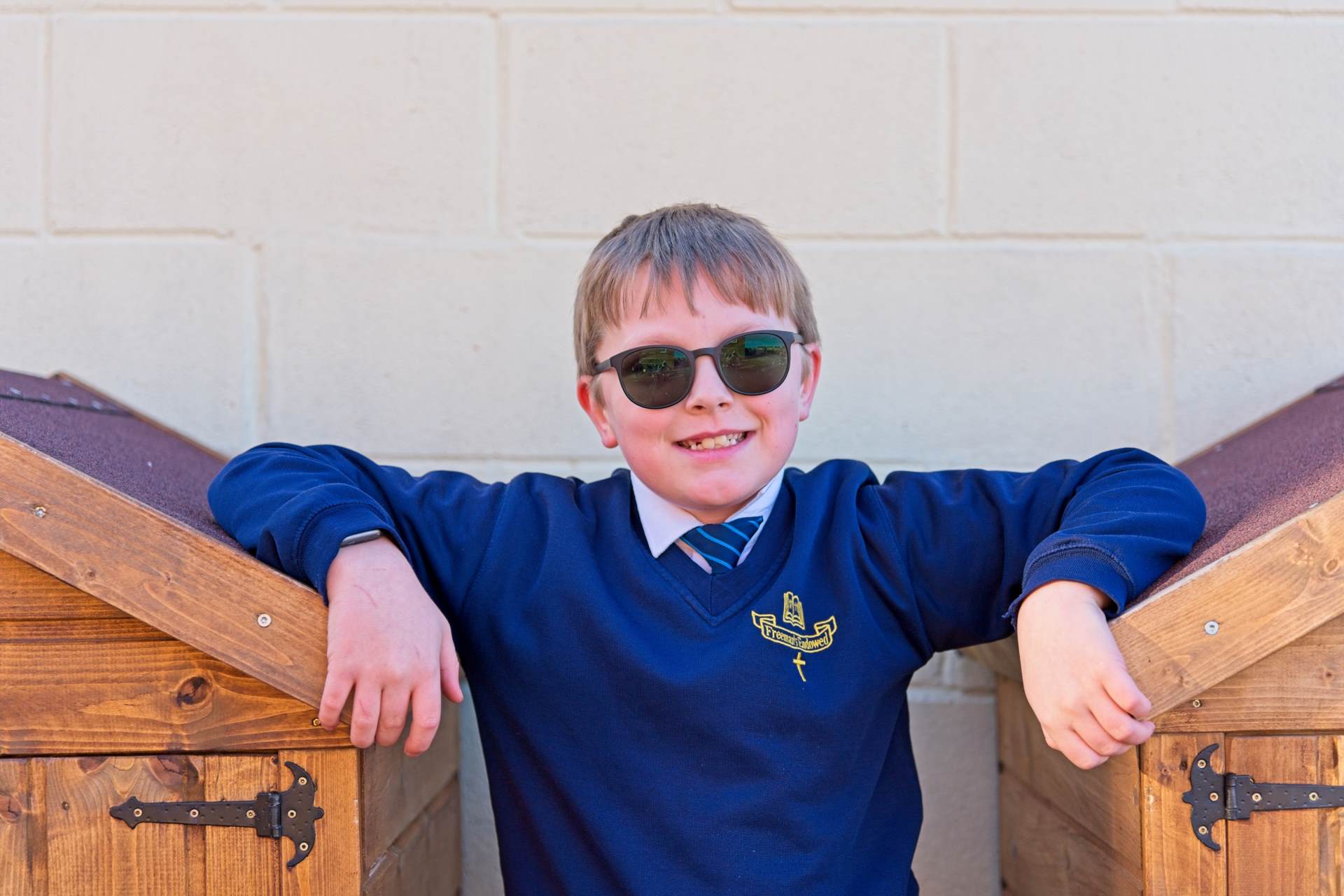Wellbeing & Thrive
At Freeman's Endowed CE Junior Academy, we are committed to supporting the emotional health and wellbeing of all our pupils and staff and recognise that everyone experiences life challenges that at times can make us vulnerable and in need of additional emotional support. We take the view that positive mental health is everybody’s business and that we all have a role to play.

At our school we:
- help children to understand their emotions and feelings better through developing good emotional literacy skills
- support children to feel comfortable to share any concerns or worries they might have
- use Personal Social and Health Education lessons to support children in their understanding of the different relationships they might have
- provide guidance for individuals to develop their social skills in order that they can form and maintain healthy relationships
- promote self-esteem and ensure that all children know that they matter
- encourage children to be confident and ‘dare to be different’
- help children to become emotionally resilient and manage setbacks by teaching them how to develop a growth mind-set
- support children to become independent in an environment where it is okay to make mistakes, knowing that this leads to new learning

Every child's mental health is important at Freeman's and this is why we have adopted the Thrive approach in our setting.
What is Thrive?
Thrive is a national programme that supports over 300,000 children and young people. It has had an extremely beneficial impact on schools all across the UK in working alongside children and staff to support and teach emotional development.

Emotional Development
Thrive is an evidenced-based programme where everyone in the school participates in their different roles to build emotional resilience and resourcefulness, which decreases the risk of poor mental health. This ensures children are supported, have less barriers for learning and means they are able to access their learning.
The Programme
The Thrive Approach requires a profile of each child, which is before any sessions children attend. The profile asks various questions about your child’s perspective on things and then strategies in the form of an action plan are formulated. The aim is to work alongside children and staff to look at strengthening the Stress Regulation Systems so that during the process children can: grow their emotional language, improve their communication skills and gradually be able to ‘self-soothe’ or ‘self-regulate’ their own emotions, through relationship and reflective skills. The Thrive approach consists of ‘strands’ that directly correlate to the developmental stages of brain growth in relation to cognition and social/emotional and behavioural development.
Smile, Thrive, 3, 4, 5
The science behind smiling is important for children to understand. Smiling releases tiny little molecules, called neuropeptides that fight off stress, and neurotransmitters such as dopamine, serotonin and endorphins. These neurotransmitters are natural antidepressants and mild pain relievers. The brain likes smiling and sends out those neuropeptides and endorphins along pathways in our brains called neural pathways. This causes us to feel safe, and it lowers anxiety so that we are able to ‘rest and digest’. This allows people to be in a relaxed state and experience happiness or joy as a shared experience.
Thrive
Thrive recognises that not every person has had the same experiences, and some of our neural pathways are like an overgrown walkway that needs some attention. It needs a bit of re-organising and pruning and the ground needs to be made good for planting new trees and colourful flowers, so that it becomes a place of colour and light ready for re-growth. Thrive supports the growth of emotional language to better communicate sensations in the body and how they correlate with emotions. By becoming more curious as a habit, so that learning is seen everywhere, new and positive and stronger neural pathways begin to form in the brain and the neural pathways that are negative and destructive begin to fade. The process of reflection and reciprocity (back and forth response exchanges such as the smile) begins to enable emotional resilience and strategies are taught to practise when they are faced with “BIG” emotions such as anger, sadness or fear.
And, the 3, 4, 5
This is a breathing rhythm. All the children are learning it, and they have a practical tool in their learning packs to help them in times that are not so easy.
To find out more about Thrive, please visit: https://www.thriveapproach.com/






